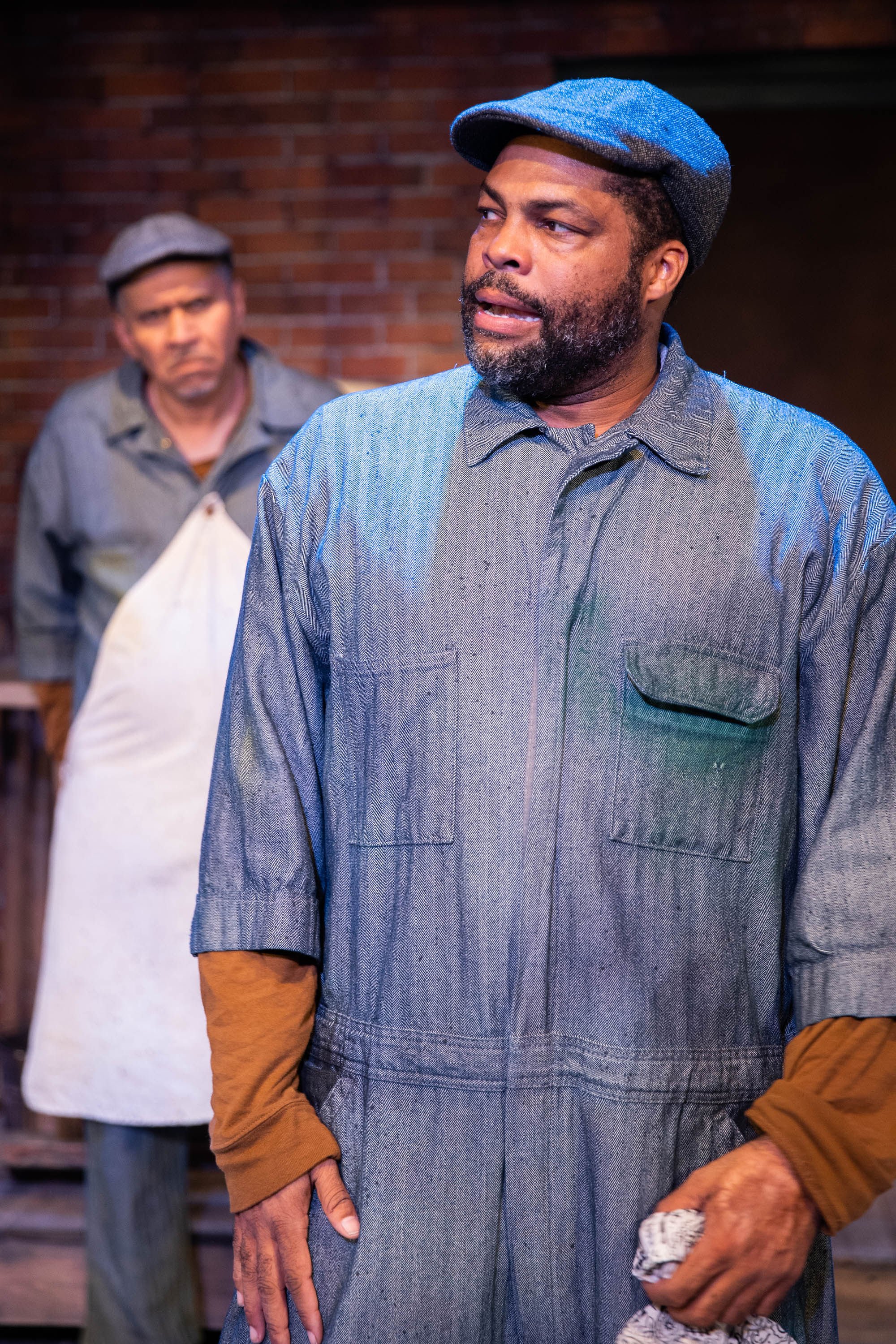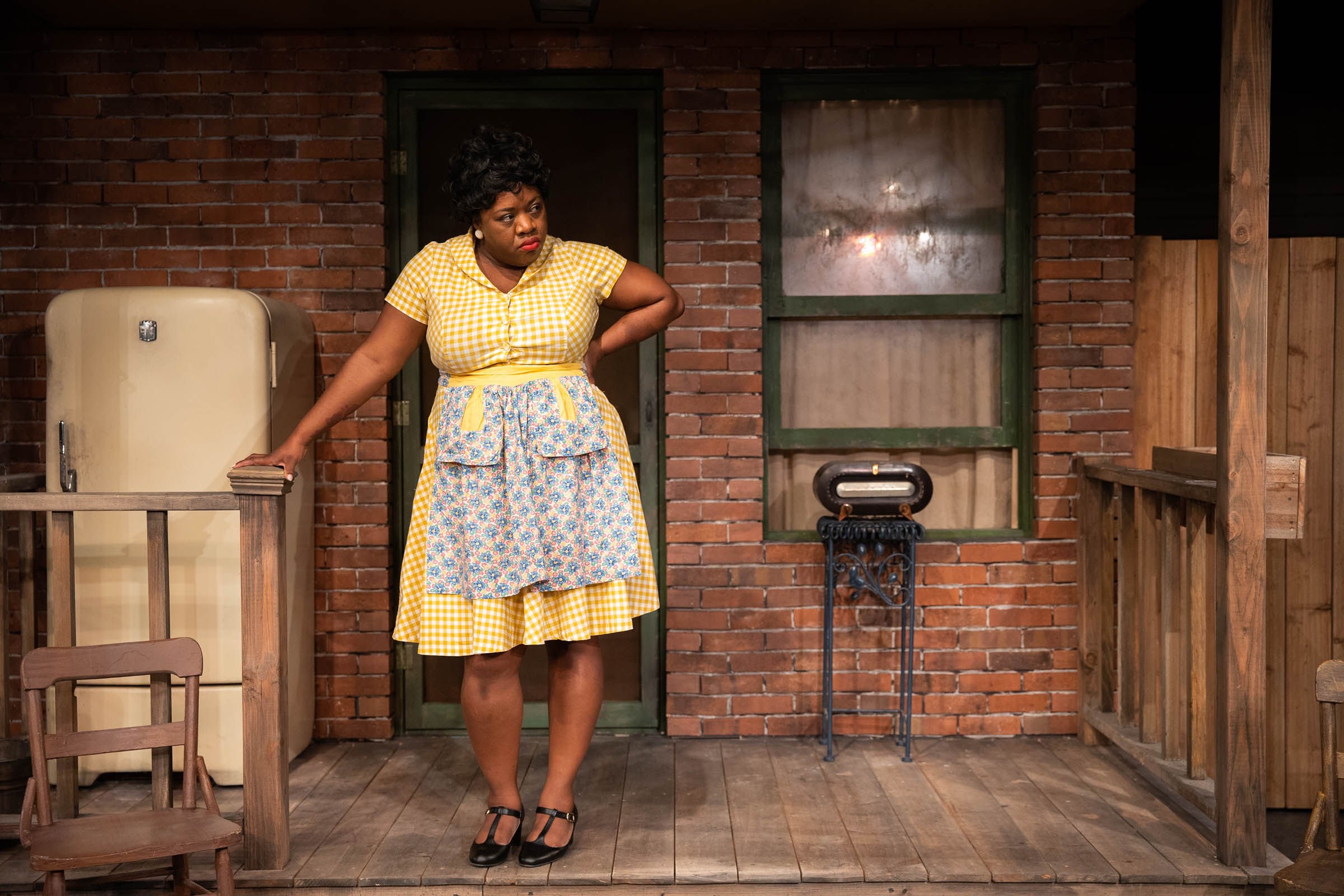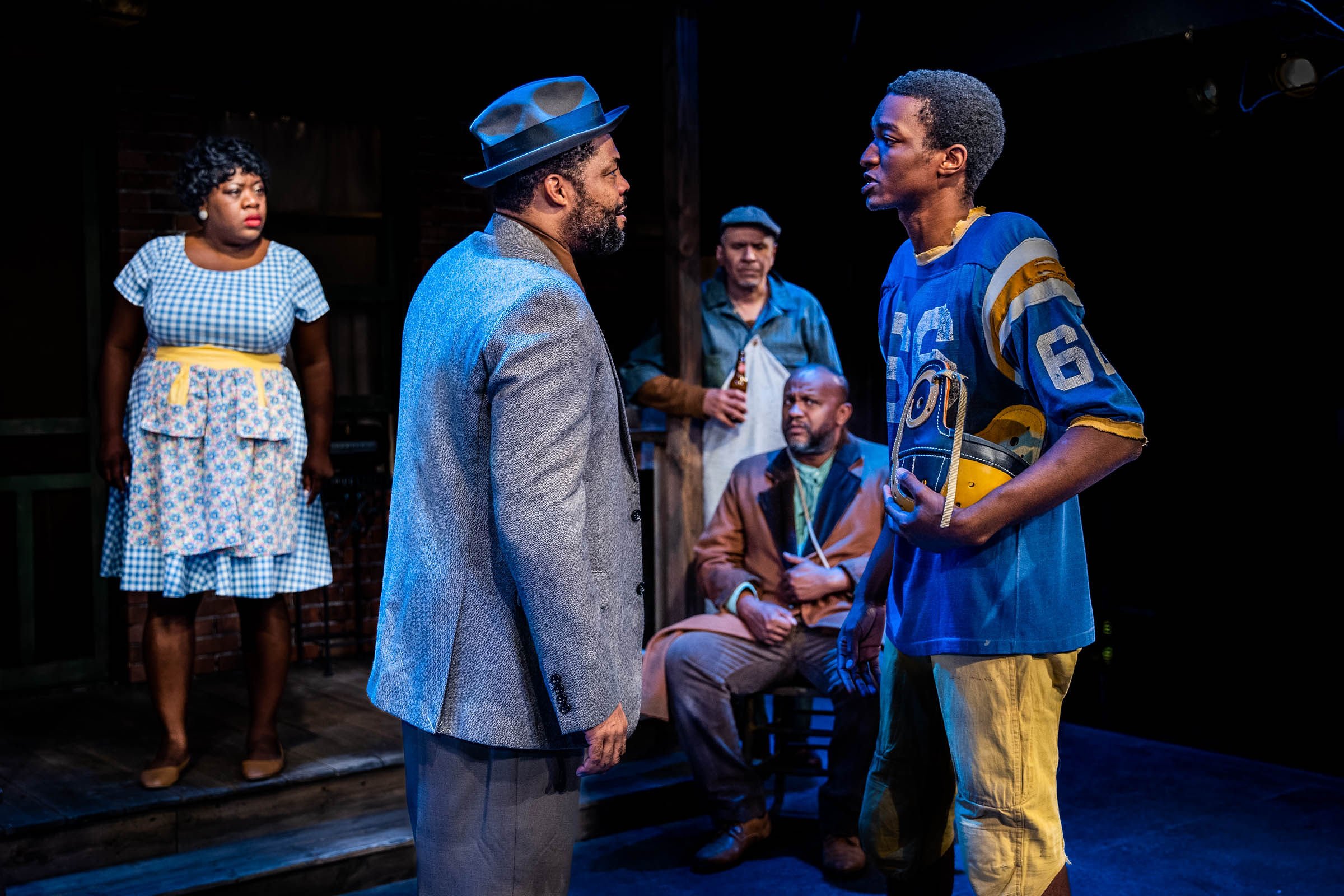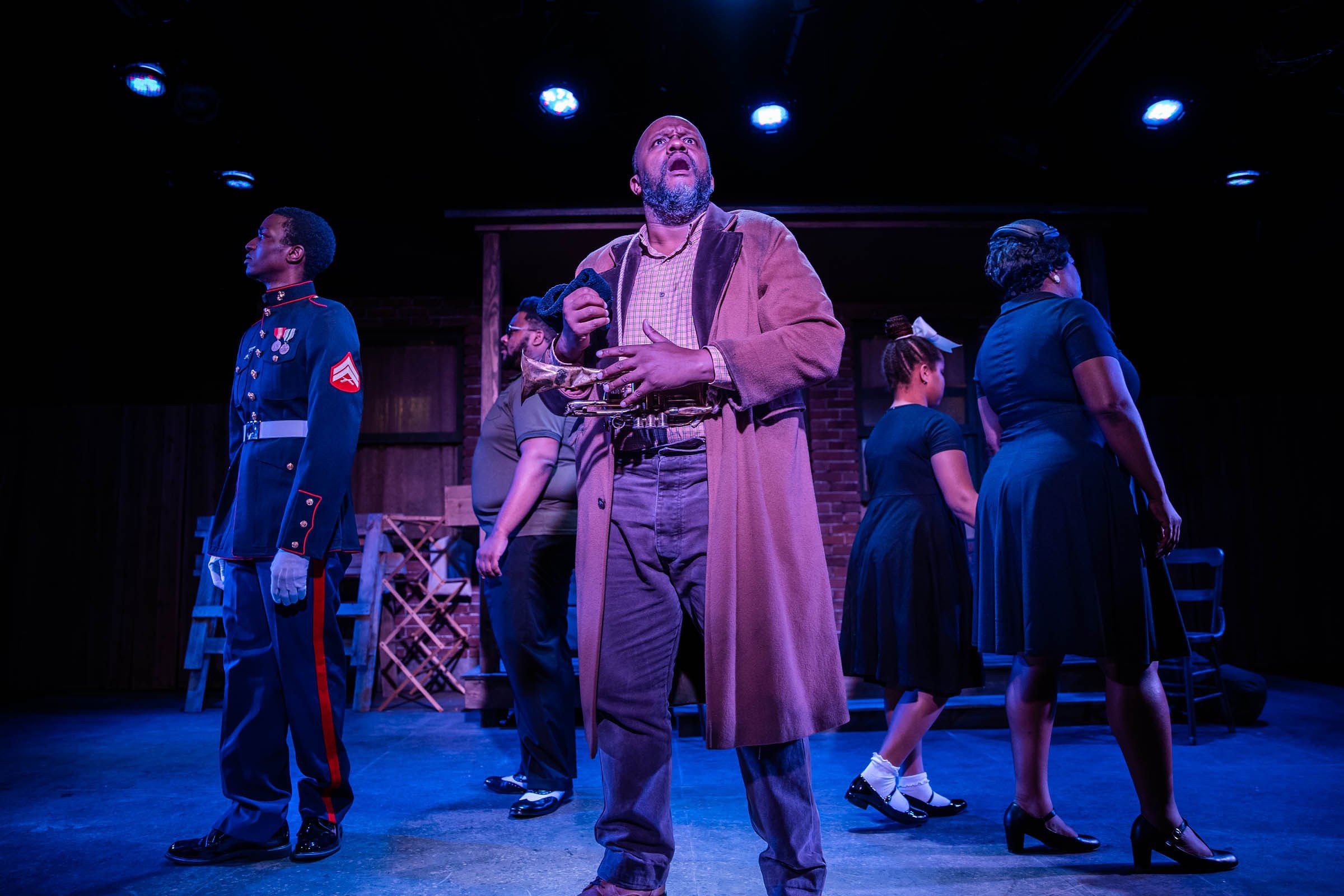Fences @ Circle Theatre
Photo Credit: TayStan Photography
—Jan Farrington
In the American playwriting Hall of Fame (the one that lives in my head), I used to rank Tennessee Williams and Eugene O’Neill as the “greats” of our 20th century theater. They’re still up there—but I realized some years ago that for me, August Wilson had blown past them into first place, not just in my head, but in my heart. With each year and every new production, Wilson’s 10-play “Century Cycle” (one for each decade of the Black experience of 20th-century America) becomes more compelling and relevant to our national conversation.
So there’s reason to rejoice over Circle Theatre’s just-opened production of Wilson’s Fences, directed by Jubilee Theatre artistic director D. Wambui Richardson. Wilson, who wrote most of his plays about the African-American community he grew up with in Pittsburgh’s Hill District, sets this one primarily in the 1950s. It zeroes in on one man, the “rubbish” collector Troy Maxson (Sean Massey), caught in a difficult space between the brutal, limiting world he grew up in, and the slowly changing world he eyes with suspicion and bitterness.
Troy is an angry, hard man—an ex-convict and former Negro Leagues baseball player certain he could have made the Majors, if not for “the white man” blocking his way. You came along “too early,” his wife Rose (Stormi Demerson) tells him. “There ought not never been no time too early!” he shoots back. Now he’s blocking his son’s dream of playing college football—all “foolishness,” he tells Cory (Reuben Beckett).
He’s a hard man to like. But Wilson shows us his better half: Troy’s endless determination to take care of his own. The son of an abusive father and a mother who ran away from it, he’s determined to do right by his family: Rose, Cory, older son Lyons (Rickie Jones), and his younger brother Gabe (Jamal Sterling), a World War II vet with a head injury—convinced he’s Troy’s brother and the Archangel Gabriel, trumpet and all. Why else would Troy get up every morning to lift tons of garbage? Why else does he spend his off-hours building a tall hardwood fence around his house and yard? It’s his life’s work to keep a dangerous world away from them all.
In some ways, Troy is his best self in the company of longtime friend Bono (Selmore Haines III), a gentle, wise man who knows Troy from both prison and “the rubbish”—and sees his faults and virtues. Bono is kind, but isn’t afraid to criticize when he sees Troy going off the rails. Like Troy, Bono found a good woman after prison; unlike Troy, Bono doesn’t screw things up—though by now, both we and Bono understand how past demons might lead him to those mistakes.
Director Richardson does a fine job of maintaining the play’s pace and energy, and of keeping Wilson’s rich vernacular language coming through. With Adam Chamberlin’s effective lighting design, scenes fade out and in almost cinematically, and Bob Lavalee’s spare, iconic back-porch set never loses our interest. Aaron Patrick DeClerk’s costumes—overalls, jazz hipster togs, church outfits—serve well, though I could have wished for more variety and “period” feel in Rose’s wardrobe.
Both Haines and Sterling are standouts, perfectly cast in the choice roles of Bono and Gabe. Newcomers Beckett, Jones, and Olivia Meredith as young girl Raynell show promise. (Chasity Miles is Raynell at alternate performances.) Massey certainly brings the explosive, raging emotion to his portrayal of Troy; when he pulls back the volume, it’s frequently (and effectively) for his stories of a painful childhood. As Rose, Demerson draws us into her emotions, a heartfelt mix of loyalty and disappointment in Troy, the man in whom she “planted” her whole life’s hopes and dreams. Yet as a stage pair, this Troy and Rose reach for but don’t quite achieve the stage chemistry and physical ease we need, if we’re to feel as deeply for them as Wilson wants. It’s a grand effort, but doesn’t soar—though Demerson’s eloquent delivery of Rose’s final words about her life and their marriage bring us wonderfully close to understanding.
We don’t get enough August Wilson onstage in these parts (or any others), and Circle’s production is worth seeing for so many reasons—including a short but significant change to the final moments of the play that I felt was incredibly moving, wherever (and from whoever) it originates. A trumpet, a family, a light…and that’s all I’m going to say about that.
WHEN: Through September 24
WHERE: Circle Theatre, 230 W. 4th St., Ft Worth
WEB: circletheatre.com



